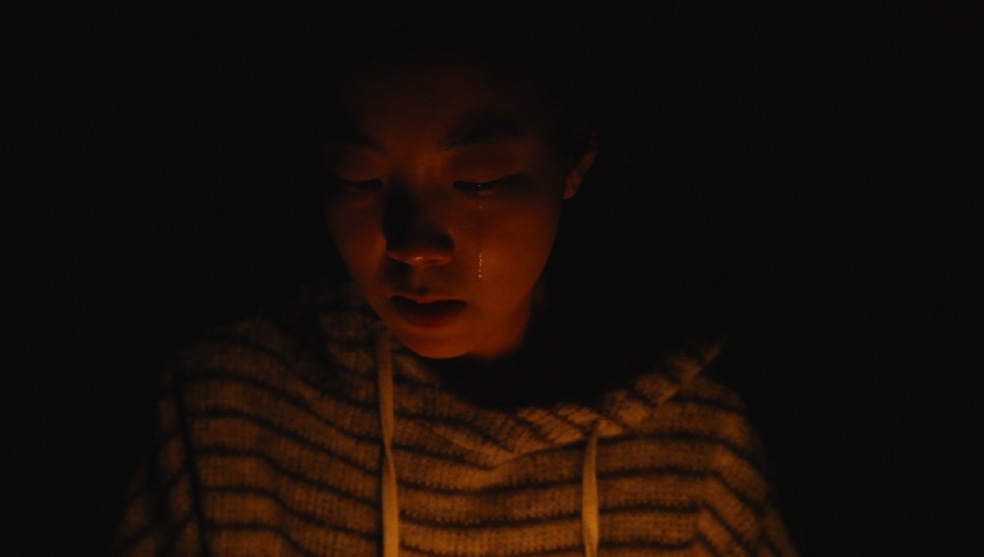BIFF 2012 Interview: FATAL Director Lee Donku Talks Violent Sex Crimes, Working in a Bathhouse, and Respect Towards Women

One of the most talked-about films this year at the Busan International Film Festival was the low-budget debut feature Fatal, which screened as part of the event's signature 'New Currents' competition. It's a section of the festival reserved for first or sophomore features from Asian filmmakers that has discovered such respected works as The Journals of Musan (2011) and Bleak Night (2011).
Fatal director Lee Donku took some time out of his busy festival schedule to sit down and talk with ScreenAnarchy.
Where did the inspiration for your film come from?
Firstly, when I began work on this story I wasn't sure about its tone, I didn't know whether it would be dark or bright. One thing I was sure about was the character who is involved in a sex crime. I followed his motivations and really tried to understand him. The plot and its various elements followed naturally as a result. It's also difficult to define it as a genre film. It could be a love story or a thriller, so I came up with the term Melo-noir.
What is your background in film?
Back in 2002 I was an actor, I had a part in a commercial film called Turn It Up. I was already thinking about making my own film and starring in it. Currently I just want to focus on directing.
Some people have already compared FATAL to Lee Chang-dong's POETRY (2010); how does that make you feel?
It's an honor to be compared to such a master's work.
Many films of late, including FATAL, have sought to highlight the wave of violent sex crimes in Korea, past and present. What are your thoughts about this issue in Korean society?
This kind of thing has been going on a while in Korea but also around the rest of the world. These days it's far too easy to gain access to violent and sexual videos online, particularly for young people. I think that schools and parents should be more vigilant in monitoring this sort of activity. The seriousness of these crimes has been escalating and I think that there should be some sort of solution to the problem, especially as far as exposure to these kinds of materials is concerned.

You shot your film on a tiny 3 million won budget ($3,000~). What challenges did you face and what was your shooting schedule?
We did indeed have a very small budget but this was nothing to brag about. I'm proud of having persevered through to the end. We shot for five days in September and subsequently for another five in November.
I've heard that you work at a bathhouse. Could you tell us a little about this? I'm very curious to know how you were able to juggle this with your filmmaking.
Just as in any other society, if you're an amateur and you want to do something, you need a part-time job in order to support yourself. Two years prior to the making of this film, my producer Kim Tae-hoon and I worked together in a bathhouse and we would talk about the film every single day. We had another part-time job handing out flyers and the money we made from that as well as all the time we spent talking about the film eventually resulted in Fatal.
FATAL is very hard-hitting film. How do you think that audiences will react to it, particularly here in Korea?
Being here at Busan has been my first opportunity to present this film to an audience and I've been very curious to know what spectators thought of it. I've been to all the screenings and have asked audience members for their impressions. The responses have tended towards two extremes: women in the audience seemed to appreciate it, as they said they could relate to it, but there were others who hated it. I think that watching films always comes down to personal taste, but I wasn't concerned with making a film for other people. It was always my intent to make the film that I wanted, so I have no regrets if anybody views my film negatively: I did what I needed to do.
How did your personal experiences affect the script?
I have many older sisters, and as I grew up with them and my mother (I was the only boy in the house), I've always had a lot of respect towards women. So whenever I read articles dealing with various sex crimes I would always get very upset. As I began to write the script, I was reading more and more about these kinds of crimes and these criminals that committed unforgivable acts. This was the process I went through in order to understand the character.
Could you comment on the representation of religion in your film?
Personally, I don't ascribe to any religion, so I tried to be neutral about this subject onscreen. The reason that I included the church elements was that I was so deep into the characters that I was always thinking about what they might do in their situation. Seong-goon is not a particularly smart character and as he looks for forgiveness, the church seemed like a realistic option.
What are your thoughts on the state of the low-budget filmmaking scene in Korea?
Nowadays there is quite a lot of government money to support the production of independent features. However, in my case I was not able to apply for these kinds of funds as my script and storyboards weren't ready, so I proceeded using my own funds. As there are far too many actors and filmmakers who are hoping to become professionals, I think the competition is very intense.
Have you found a distributor for FATAL?
I don't have a distributor yet, but a lot of companies have expressed interest. So we're confident that someone will pick it up.
What are your plans for your next feature?
I'm currently writing a script for a family film.
Finally, what are your favorite Korean films?
Memories of Murder (2003) and Secret Sunshine (2007).



-thumb-650x368-35044.jpg)




